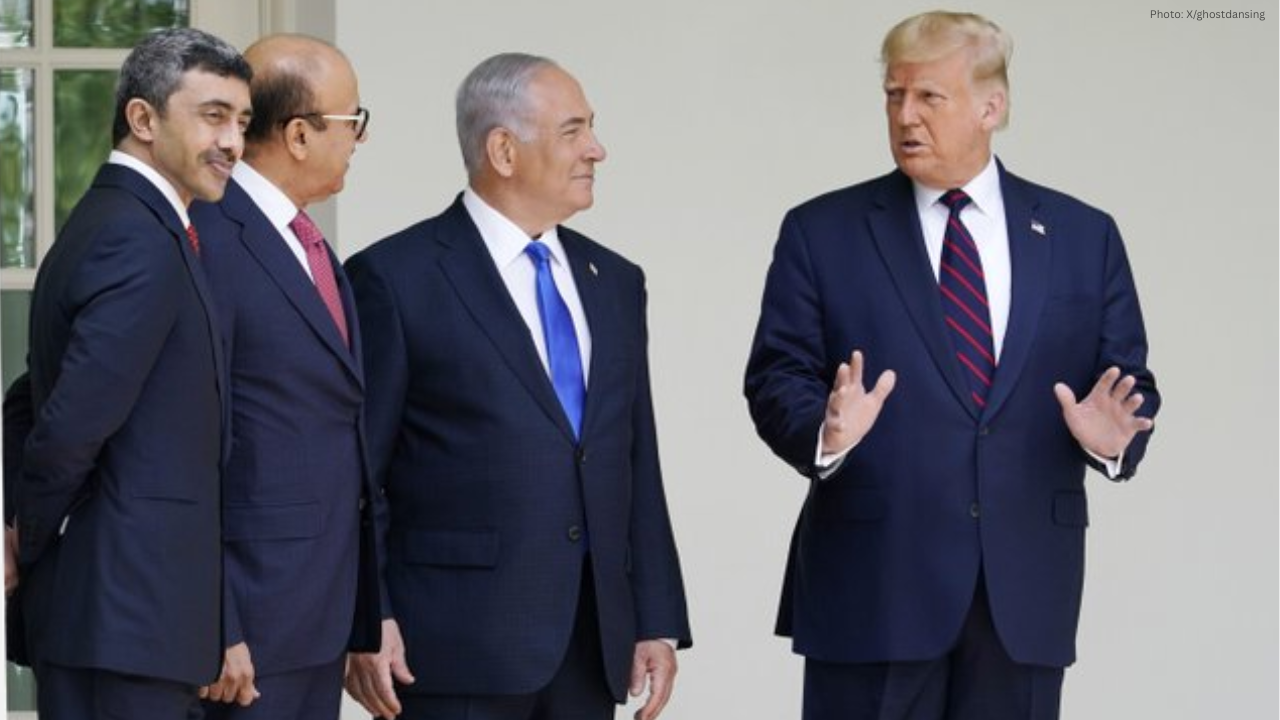
Post by : Naveen Mittal
In a significant development, U.S. President Donald Trump declared that he would not permit Israel to annex the occupied West Bank, a move that directly opposes Israeli Prime Minister Benjamin Netanyahu's agenda. Speaking to reporters on Thursday, Trump stated, "I will not allow Israel to annex the West Bank. Nope. I will not allow. It’s not gonna happen." He emphasized that the matter had been discussed with Netanyahu but remained firm in his position.
Trump's remarks place him at odds with Netanyahu and members of his ultranationalist coalition, who have been advocating for the annexation of the West Bank. In July, Israeli lawmakers voted 71 to 13 in favor of a non-binding motion calling for the annexation of the West Bank, a proposal introduced by Finance Minister Bezalel Smotrich. Smotrich, a prominent far-right figure, resides in an illegal settlement in the occupied West Bank and oversees the administration of such settlements within Israel's Ministry of Defense.
The push for annexation has been a central issue for Netanyahu's government, with some members threatening to destabilize the coalition if a peace agreement with Gaza is pursued.
The international community largely considers Israeli settlements in the occupied West Bank to be illegal under international law. The International Court of Justice ruled in July 2024 that Israeli settlements in the occupied West Bank are illegal and must be discontinued, with the land returned to Palestinians. Despite this, Israel disputes the consensus, citing historical and biblical ties to the area and arguing that the settlements provide strategic depth and security.
While Trump's statement is seen as a positive development by some analysts, questions remain about his commitment to preventing annexation. Mouin Rabbani, an analyst at the Qatar-based Center for Conflict and Humanitarian Studies, expressed caution, stating, "One attaches value to Trump’s words at their own peril." Rabbani emphasized the uncertainty surrounding Trump's actions, suggesting that his stance could change based on future discussions or political considerations.
Trump's opposition to annexation marks a significant shift in U.S. foreign policy, potentially straining relations with Israel. The U.S. has traditionally been a strong ally of Israel, but this development indicates a more assertive approach to Middle East diplomacy. The coming weeks will be critical in determining how this policy shift affects the dynamics between the U.S., Israel, and the broader Middle East region.
Donald Trump, Israel, West Bank, annexation, Netanyahu, U.S. foreign policy, Middle East, international law, Knesset, Bezalel Smotrich










Sinner & Swiatek Shine at China Open: Semifinal Spots Secured
Jannik Sinner and Iga Swiatek advance to the semifinals at the China Open. Read about their victori

Michigan church attack kills 4, injures 8 in shocking violence
A gunman drove into a Michigan church, fired shots, set fire, killing 4 and injuring 8 before police

Moldova’s Pro-EU Party Secures Majority in Key Vote
Moldova’s pro-European PAS wins a strong majority in the parliamentary election, weakening pro-Russi

Gabriel’s late header gives Arsenal 2-1 win at Newcastle
Arsenal snatch dramatic 2-1 win at Newcastle as Gabriel heads the winner in stoppage time; Merino eq

Air France Flight 447 Trial Opens 16 Years After Tragic Crash
Sixteen years after the Air France Flight 447 crash, a trial opens against Air France and Airbus. Le

Europe close to Ryder Cup win after strong weekend play
Team Europe is on the verge of winning the Ryder Cup, showing great form in Italy and needing only a